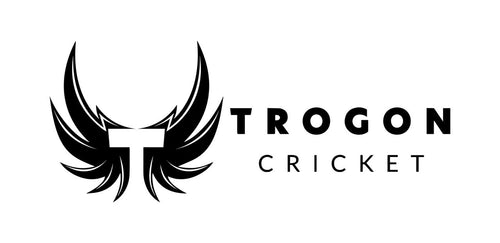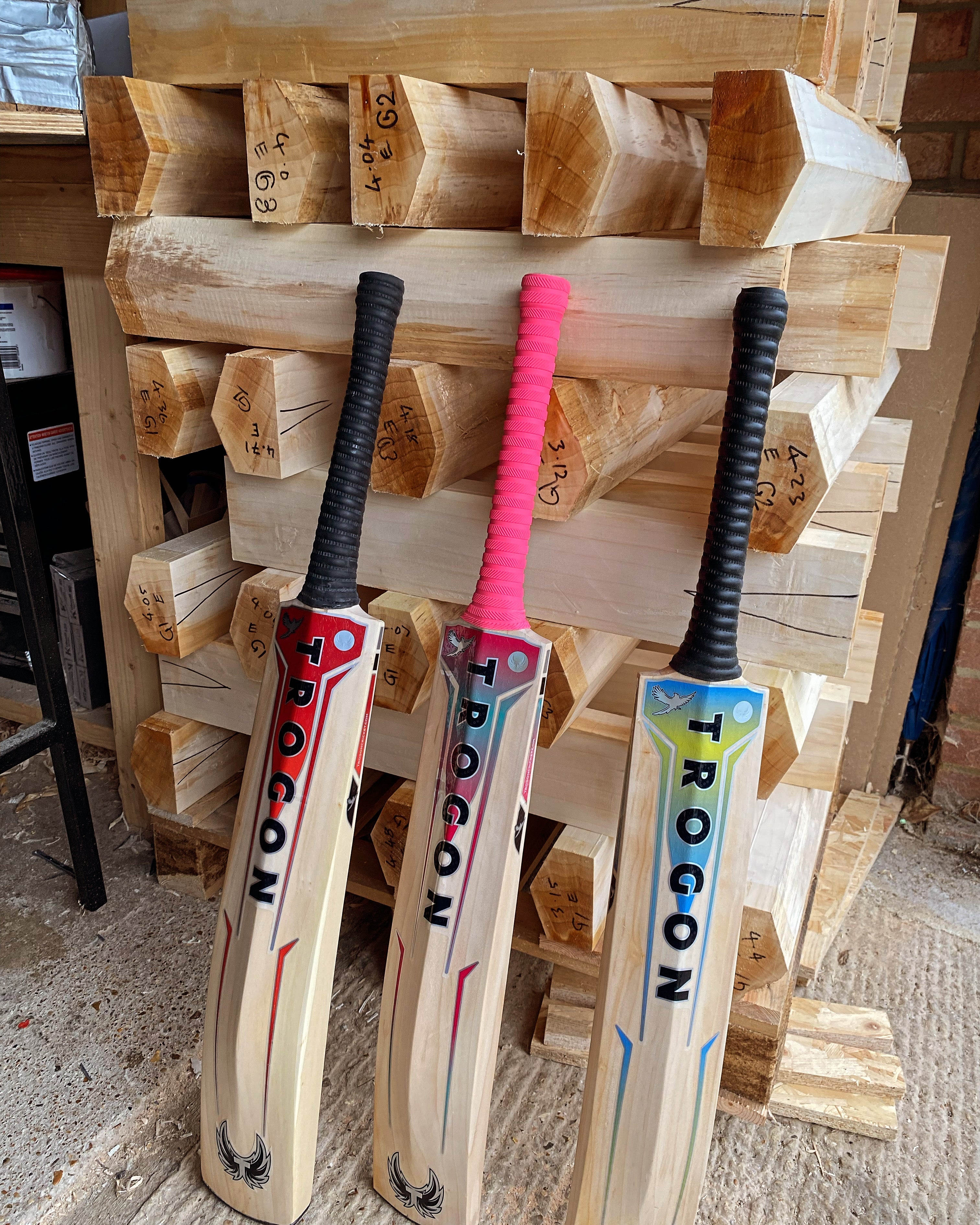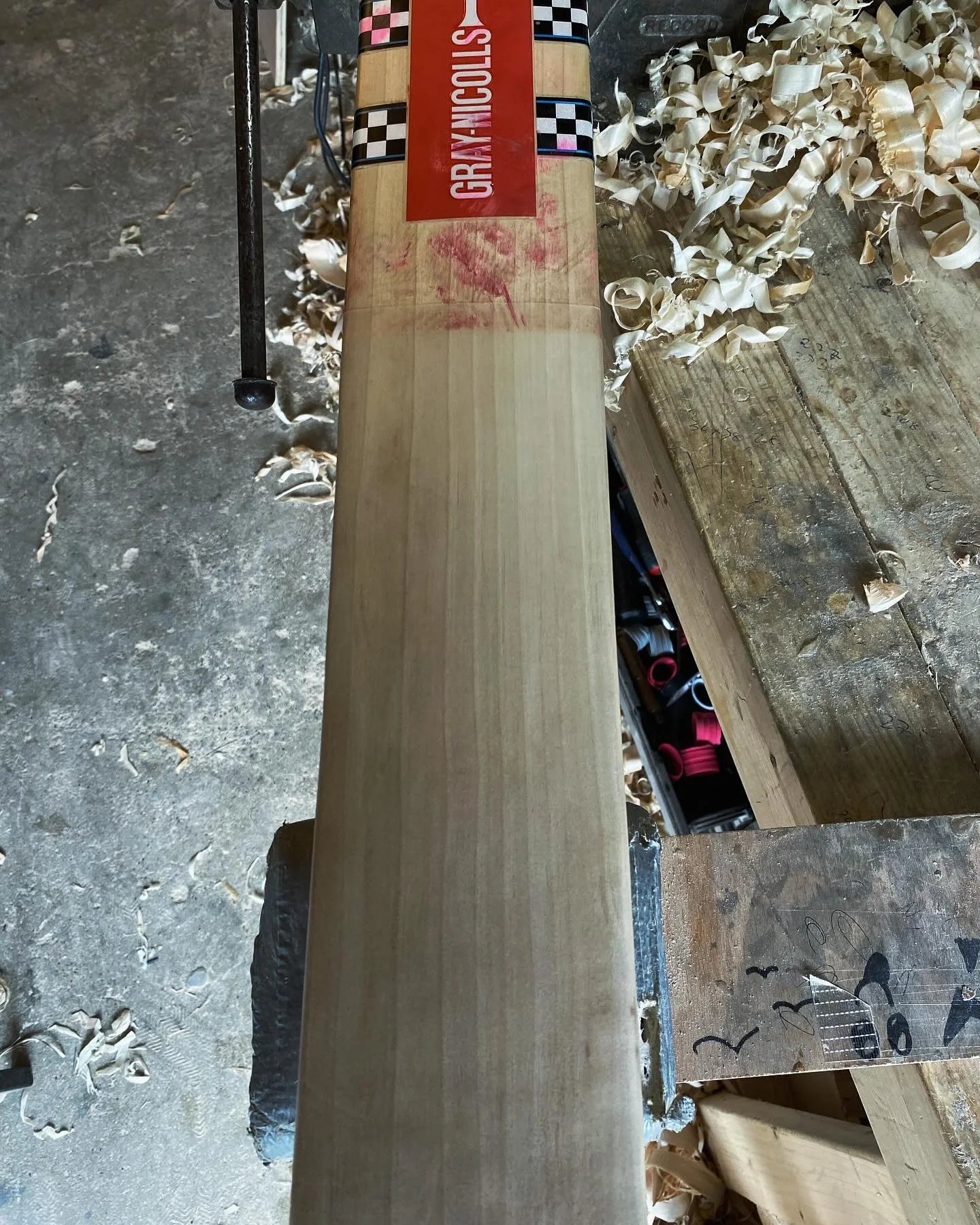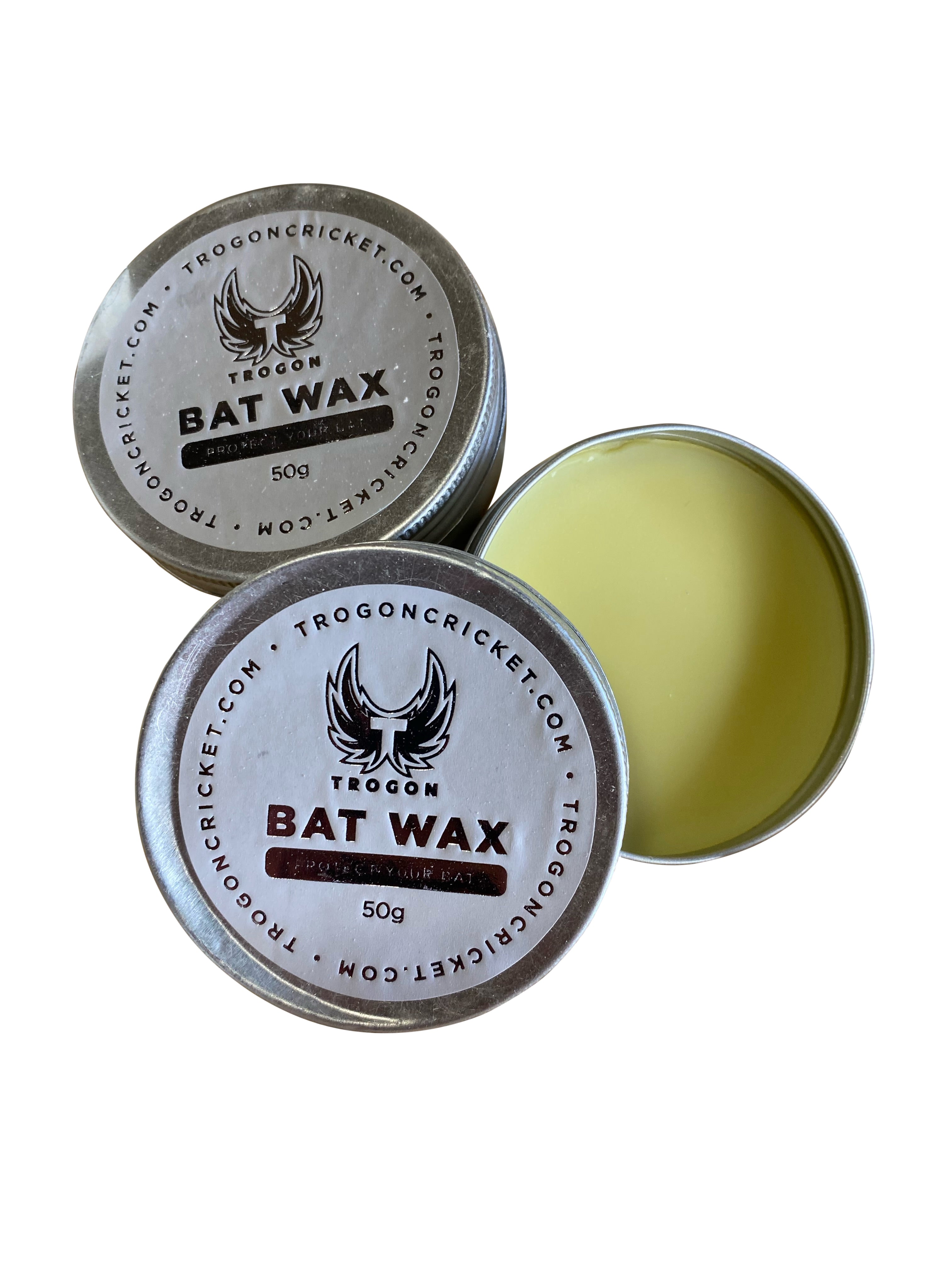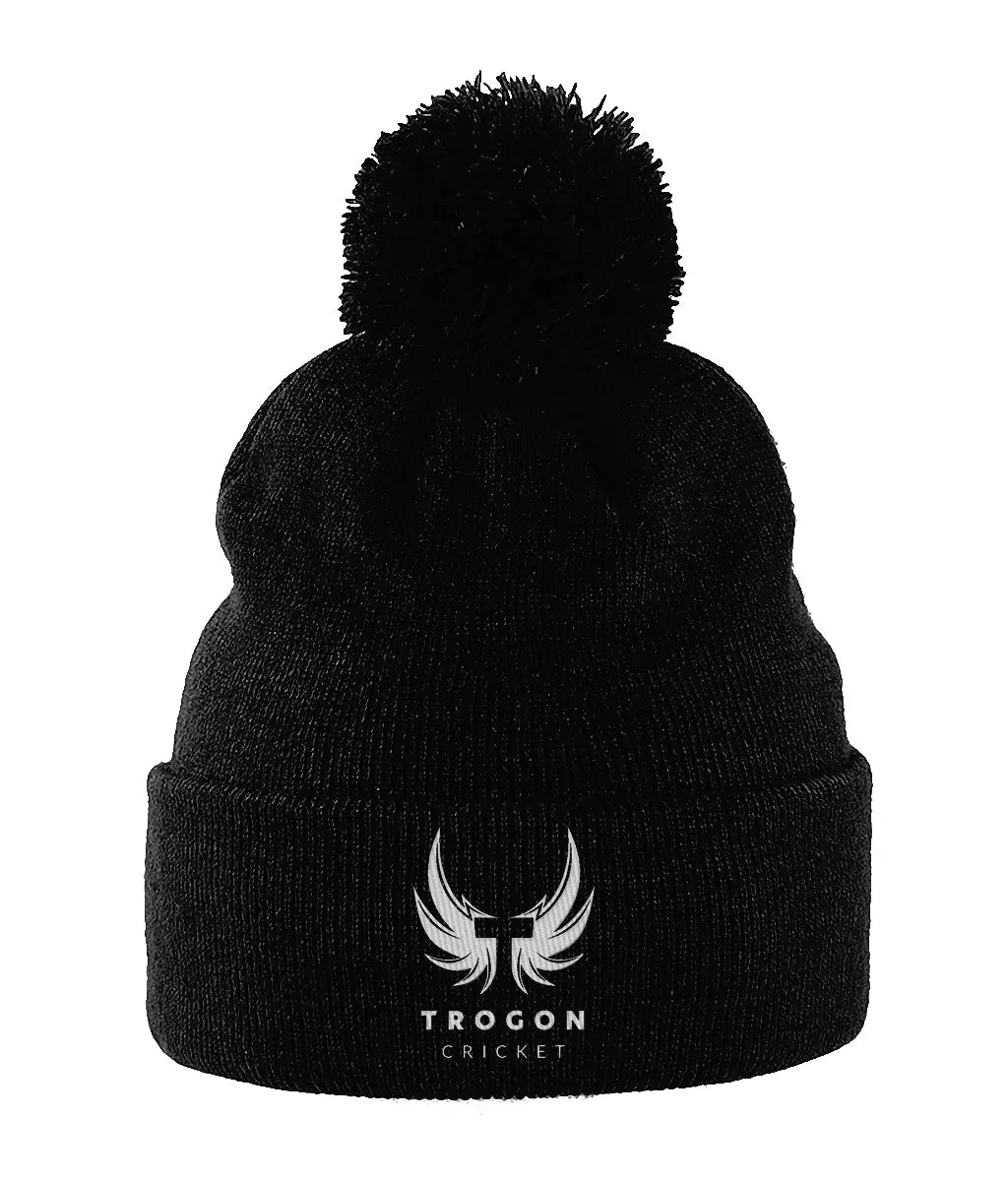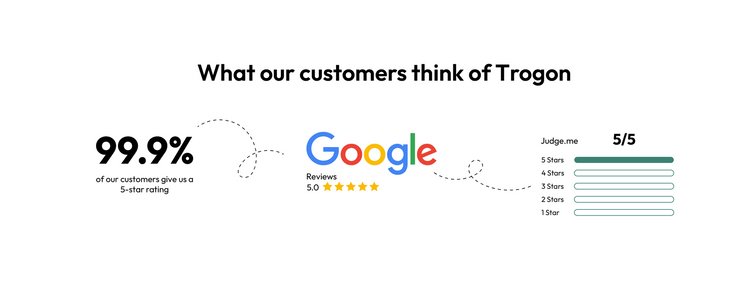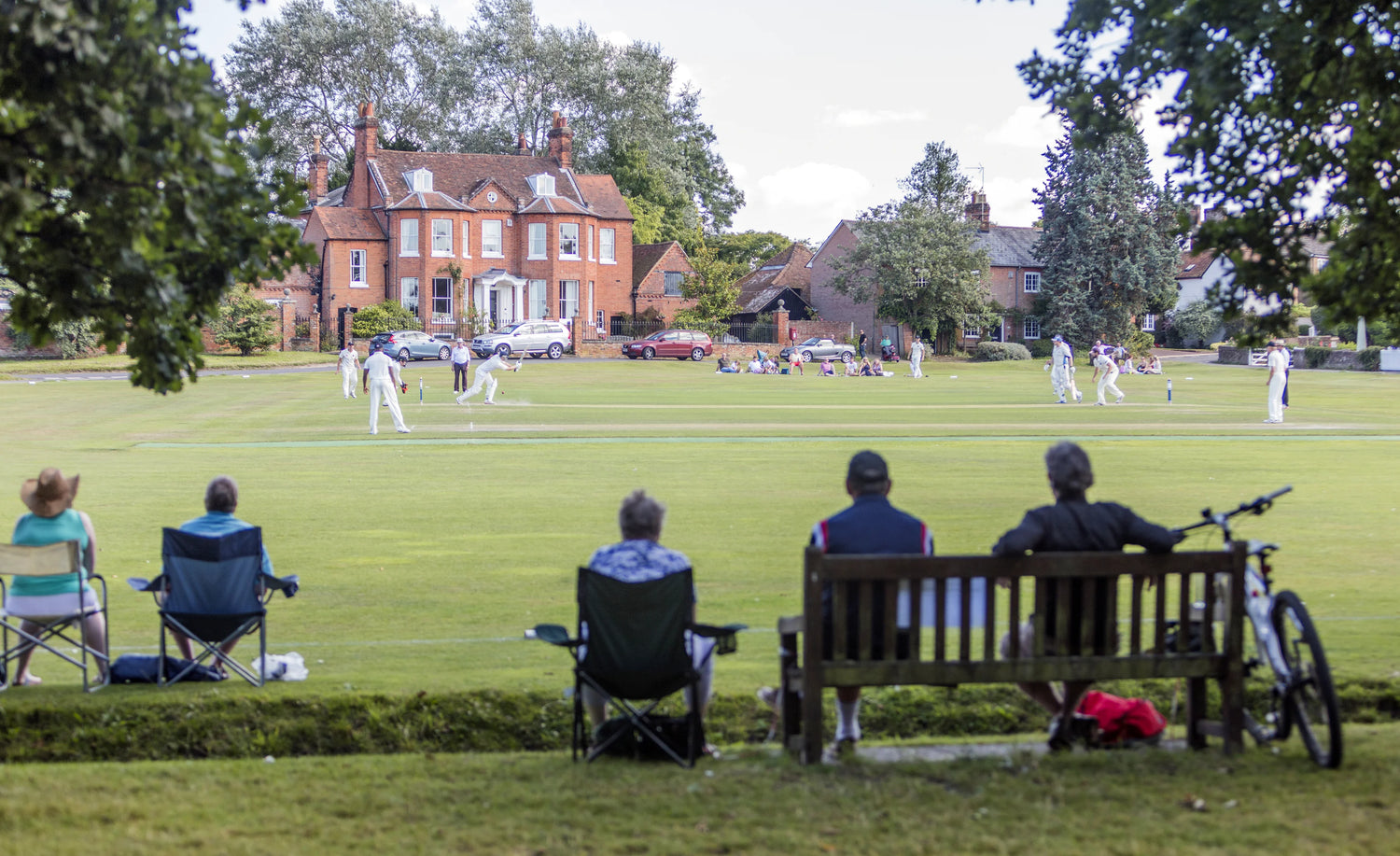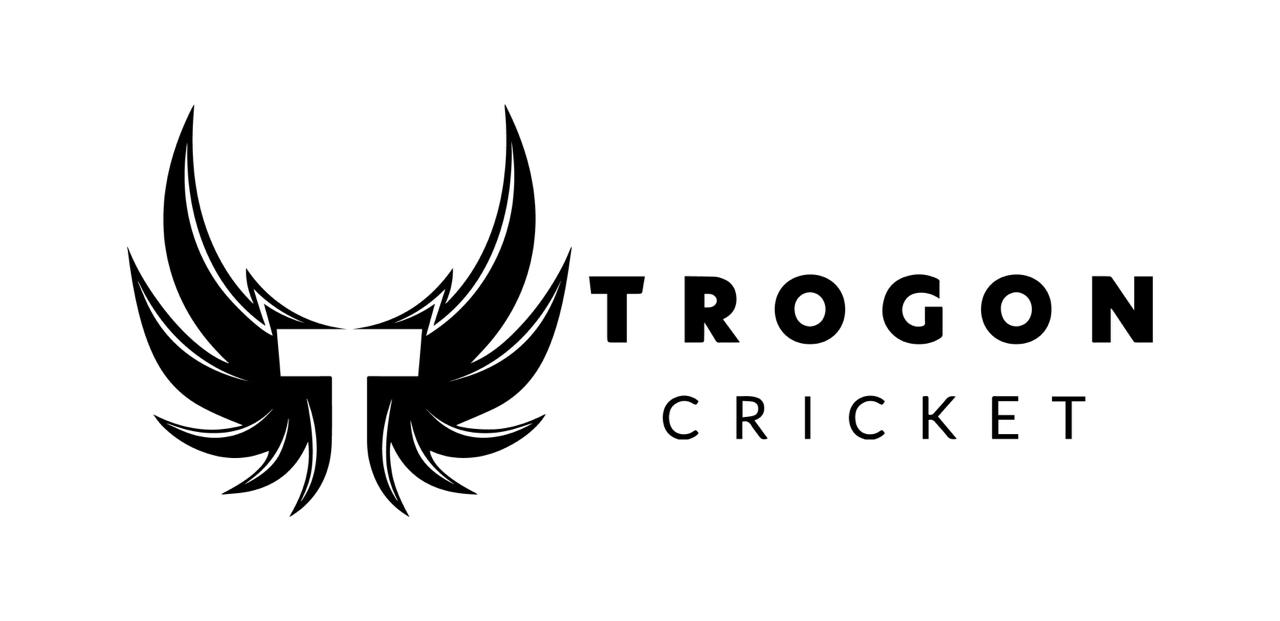One notable development in bat design is the concaved cricket bat shape, a shape that is favoured by players all over the world, especially for junior bats where most young players want large edges, this is a great way of getting those large edges and still being light enough for them.
In this blog post, we delve into the concaved cricket bat shape, examining its design, impact on performance, and the pros and cons of this shape.
But first, what is a concaved cricket bat?
A concaved cricket bat features a hollowed or scooped back, reducing the wood volume to maintain a lightweight design while incorporating large edges. This shape enhances balance, improves pickup, and redistributes power, offering a mix of agility and strength for modern cricketers.
Right, let's delve in and get all the nitty gritty details.
Understanding the Concaved Shape
A concaved cricket bat has a distinctive shape where the back of the bat is hollowed out or scooped, creating a depression. Cricket bat makers use a number of different traditional tools to create this scooped-out shape.
This shape differs from the traditional flat or slightly rounded back. The concave design significantly impacts the bat's profile, affecting its weight distribution and balance and means bats can (depending on the start weight of the cleft) have large(r) edges, which some players want, but some bat makers say don't make a huge amount of difference.
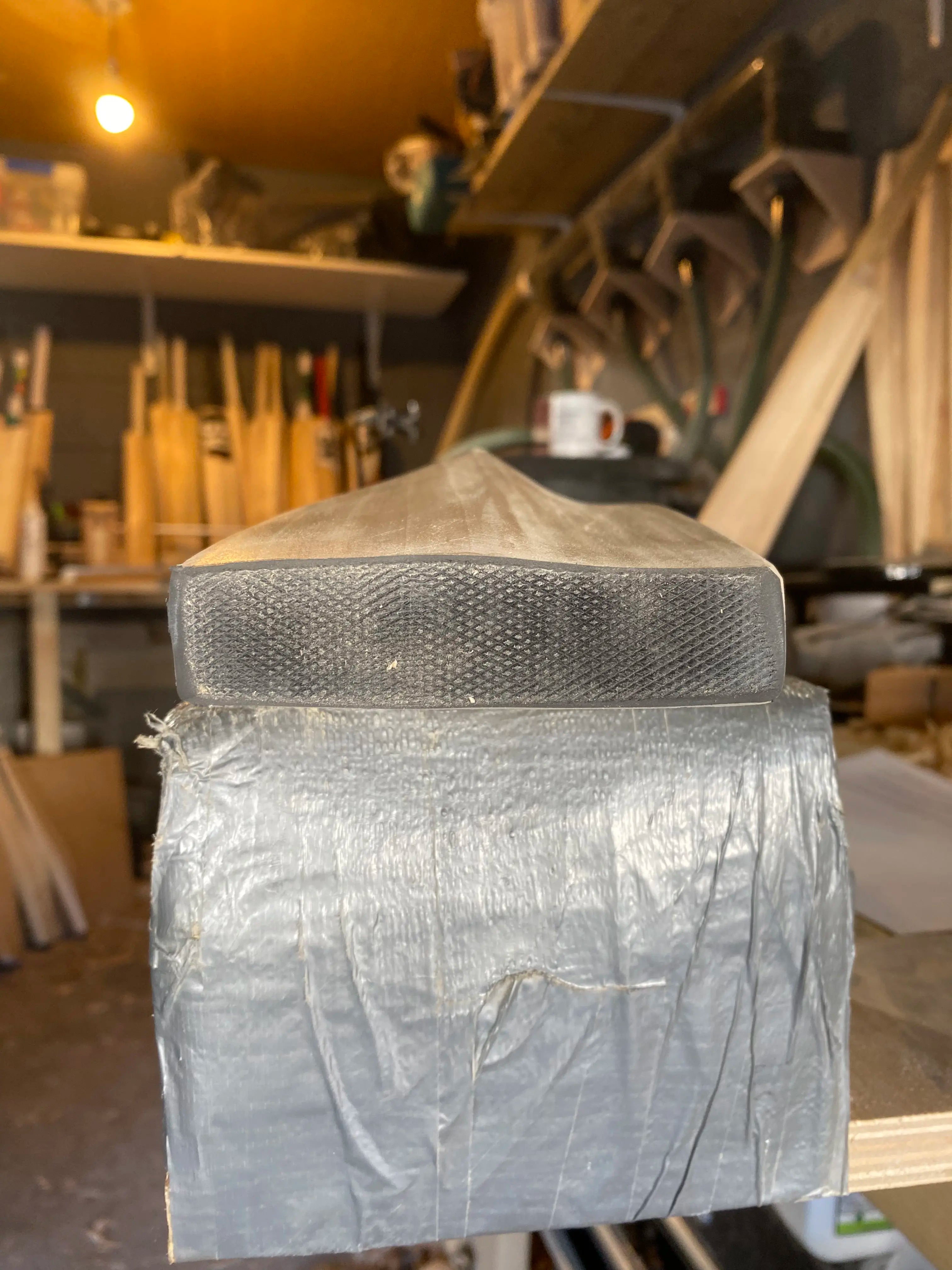
The image above shows a sample cricket bat that shows the difference between a concave and full profile shape. The concaved shape is on the right and you can see the difference with the scooping of wood.
Impact on Wood Volume
The concaving process involves removing more wood from the back of the bat. This reduction in wood volume is crucial for maintaining a lightweight bat while incorporating large edges and a significant sweet spot. (I have written about the different sweet spot/middle positions - lower middle, mid-high middle, high middle cricket bat) They are certainly worth reading before choosing your next cricket bat.
Large edges have become popular in modern cricket, offering batsmen greater power and control.
However, these edges add weight, necessitating a concave design to balance the bat and make it manageable for players. I have written about the different weights of cricket bats which you can read here, lightweight v heavy weight cricket bats.
Why Use a Concaved Shape?
The primary reason for adopting a concave cricket bat is to meet specific weight requirements while retaining the bat's power and size.
The concaving technique allows manufacturers to create a bat with thick edges (which we mentioned above) and a substantial profile without making it too heavy.
This balance is essential for modern batters who seek both power and agility in their equipment - however, as with everything cricket bat-related, the weight and shape is subjective which is why most top batters opt for a custom-made cricket bat that meets their exact requirements.
Pros of Concaved Cricket Bats
Enhanced Balance and Pickup
One of the key pros of concaved cricket bats is the improved balance and pickup.
The reduced weight at the back of the bat shifts the centre of gravity closer to the handle, making it easier for players to manoeuvre the bat quickly and with precision.
Power Distribution
Another advantage is the redistribution of power across the bat. Concaved designs often feature a prominent sweet spot, which is the area on the face of the bat where the ball achieves maximum speed when hit, as long as you are hitting the middle of the bat.
This feature aids in delivering powerful shots with less effort while sticking to the MCC rules and regulations.
Customization Potential
The concave shape also offers greater potential for customization.
Bats can be tailored to individual playing styles, with adjustments made to the degree of concaving to suit specific preferences in weight and balance.
Cons of Concaved Cricket Bats
Reduced Durability
One of the cons of concaved cricket bats is the potential for reduced durability.
The removal of wood can weaken the structure, making it more susceptible to damage, especially if the bat is not crafted with precision.
Limited Sweet Spot
While the concaved design can enhance the sweet spot, it may also limit its size compared to a fuller, more traditional bat profile.
This limitation can affect performance, especially for players who rely on a larger sweet spot.
Adjustment Period
Players transitioning to a concaved bat may experience an adjustment period. The different balance and feel of the bat can require time to get used to, potentially impacting performance initially.
Why Kids Prefer Concaved Cricket Bats
The popularity of concaved cricket bats extends to younger cricketers, especially in bat sizes 4 cricket bats, size 5 cricket bats, and size 6 cricket bats, due to their ability to accommodate large edges while maintaining the desired weight for kids' bats.
These sizes are tailored to be lightweight and manageable for younger players, ensuring that they can handle the bat comfortably and develop their skills effectively.
I have written extensively about kids' cricket bats and the different alternative willows that we stock and sell at Trogon Cricket, namely Kashmir willow and Dutch hybrid. We regularly stock workshop bats in these alternative willows, if we don't have any in stock we can custom-make them for you, if you are interested drop me a WhatsApp message on +44 07539000065.
Ideal Weight Range for Kids' Cricket Bats
The ideal weight for a cricket can be seen in our cricket bat size guide below and you can also click on the links below to get more in-depth details about the sizes and weights.

- Read more about the sizes and weights of the cricket bats we make for juniors by clicking on the below.
- Size 3: 1lb 11oz to 1lb 13oz
- Size 4: 1lb 13oz to 1lb 15oz
- Size 5: 1lb 15oz to 2lb 1oz
- Size 6: 2lb 1oz to 2lb 3oz
Benefits of Concaved Bats for Young Players
The concaved design is particularly advantageous for kids as it allows for bats with large edges (which all kids love), and are sought after for their power-hitting capabilities, according to kids!
However, a significant concern with larger-edged bats is the added weight, which can be challenging for younger players to handle. The concaved cricket bat addresses this issue by removing excess wood, keeping the bat within the ideal weight range for each size category.
This design ensures that young cricketers can enjoy the benefits of a bat with large edges - enhanced power and a substantial sweet spot - without being burdened by a heavy bat. It helps kids in developing their batting technique, as they can wield the bat with greater ease and confidence.
Conclusion
In summary, the concaved cricket bat offers a blend of agility, power, and customization, making it a popular choice among modern cricketers. While it has its advantages in terms of balance and power distribution, it also presents challenges in durability and requires a period of adjustment for some players.
At Trogon Cricket, we understand the nuances of cricket bat design and offer hand-made cricket bats for all shapes, sizes, and weights.
Our full customization services cater to each batter's personal requirements, ensuring the perfect balance between performance and comfort. We boast a vast selection of Grade 1, Grade 2, and Grade 3 clefts English willow, available for customization to meet various budget requirements.
Buying With Confidence from Trogon
If you've reached this point, I sincerely thank you for reading it all through. Your interest and support mean the world to me, and it's greatly appreciated.
Whether you're here to learn more about our cricket bats or other products or just out of curiosity, your engagement makes a real difference. Thank you for being part of our Trogon journey.

Trogon Product Guarantee
6-month guarantee on all cricket bats. That means if you purchase a bat through us and it breaks, as long as it has been knocked in properly, we will replace it like for like. This is our commitment to you on top of your statutory protections when buying products online.
Click on the below link and see our beautiful collection of handmade English willow cricket bats. We make our bats in all shapes and sizes, in different weights for adult and junior players, male and female, boys and girls - we have cricket bats for all.
